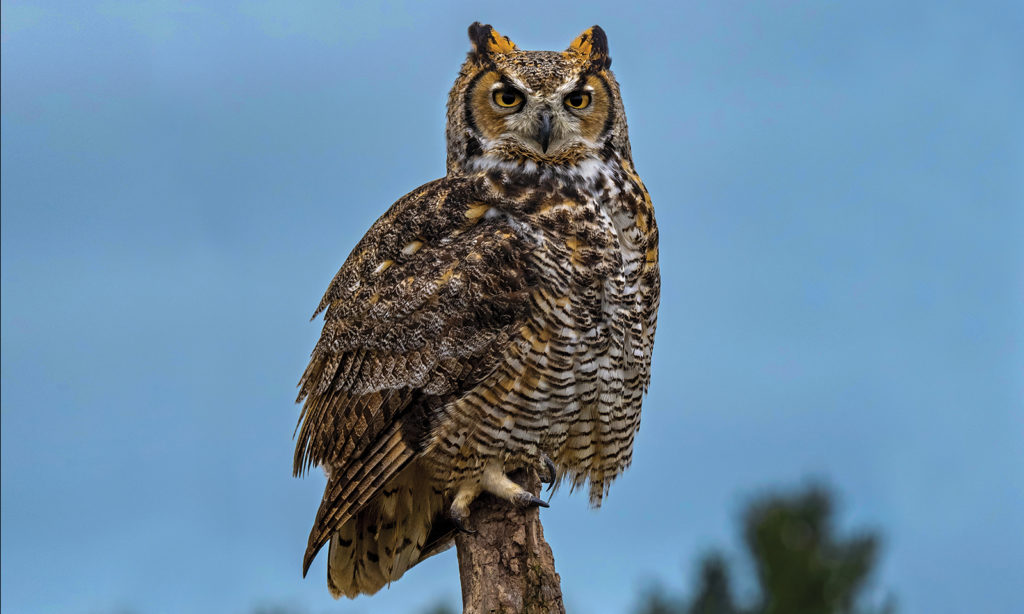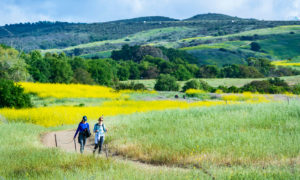
The “sunset switch” is the time each day when some animals retreat to rest and others come out to forage or hunt. With sunset occurring ever earlier in October, Irvinites on their way home from work or school can watch for the sunset switch, sighting local wildlife that is active at dusk. Best spotted as the sun sets, these crepuscular animals include deer, rabbits, bats and some owls. Some animals time their outings to avoid predators. Barn owls and great horned owls time theirs to avoid competition later at night.
WILDLIFE-WATCHING TIPS
Irvine’s open space preserves offer premium places to watch for animals active during the sunset switch, beginning in late afternoon. Be mindful of posted hours. Sit quietly, watching and listening for these sights and sounds:
• Great horned owl
The great horned owl has long ear tufts, a circular face and large yellow eyes. Considerably larger than a barn owl, it belts out a series of hoots.
• Barn owl
The barn owl, with its telltale heart-shaped face, relies on its binocular vision and keen hearing to navigate dark skies and snatch its prey. Listen for its raspy karrr-r-r-ick screech.
• Virginia opossum
The opossum is North America’s only native marsupial. The female has a pouch in which helpless young the size of a honeybee spend their early lives. This shy animal forages for just about any form of food – insects, fruits, grains, birds and pet food left outdoors.
• Mule deer
Named for its large ears, this crepuscular deer grazes on grasses, berries, twigs and acorns, according to the season. It snorts loudly when alarmed, escaping danger by “stotting” – springing into the air with all four feet leaving the ground at the same time.
• Tree crickets
Several species of tree cricket live in Southern California. The most common is Riley’s tree cricket, whose call is a pulsing string of “treet-treet-treets.” Only the males chirp, rubbing the edges of their front wings together.
Jenny Rigby, director of Acorn Group, is an award-winning environmental planner, teacher and writer.









